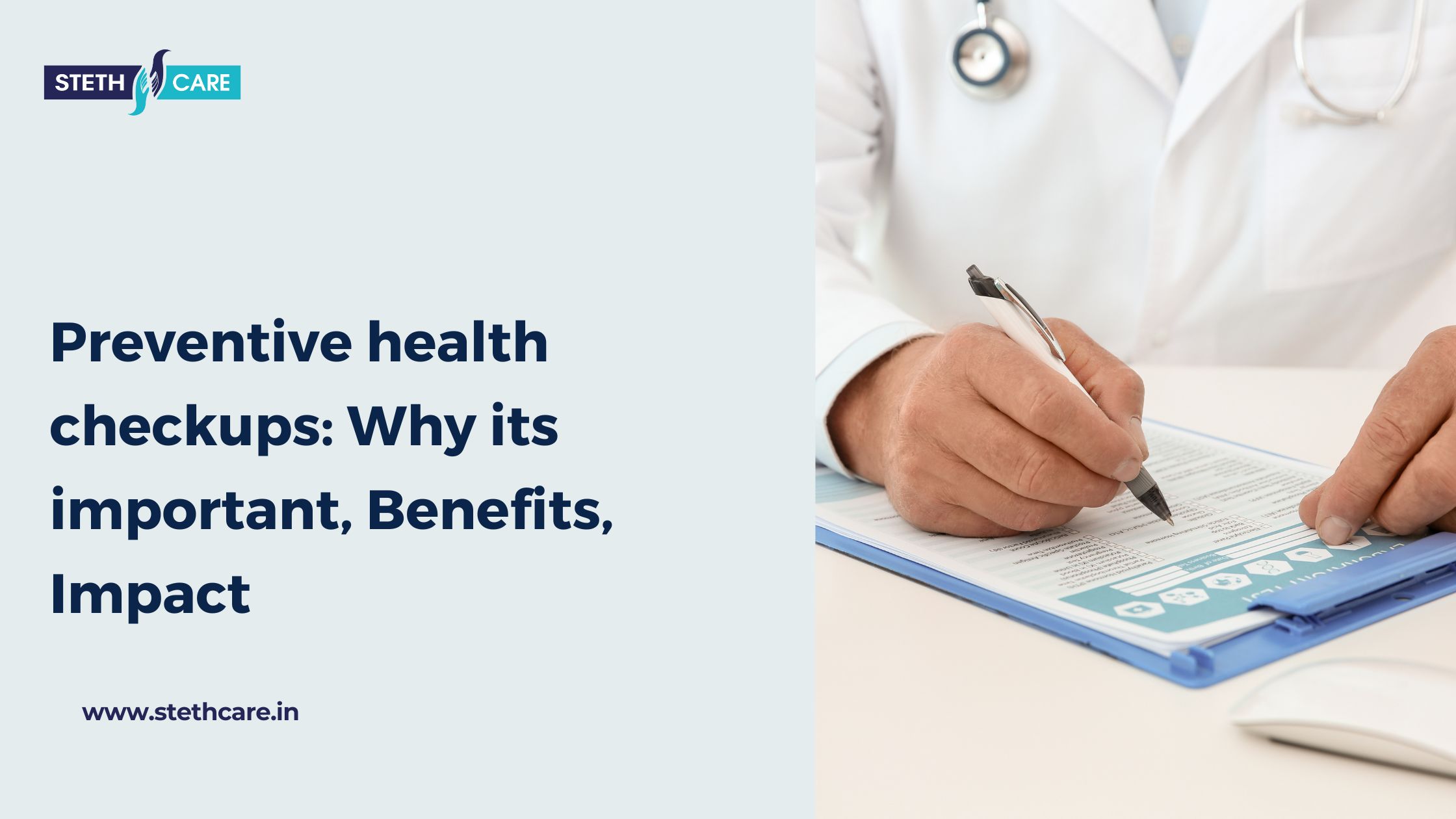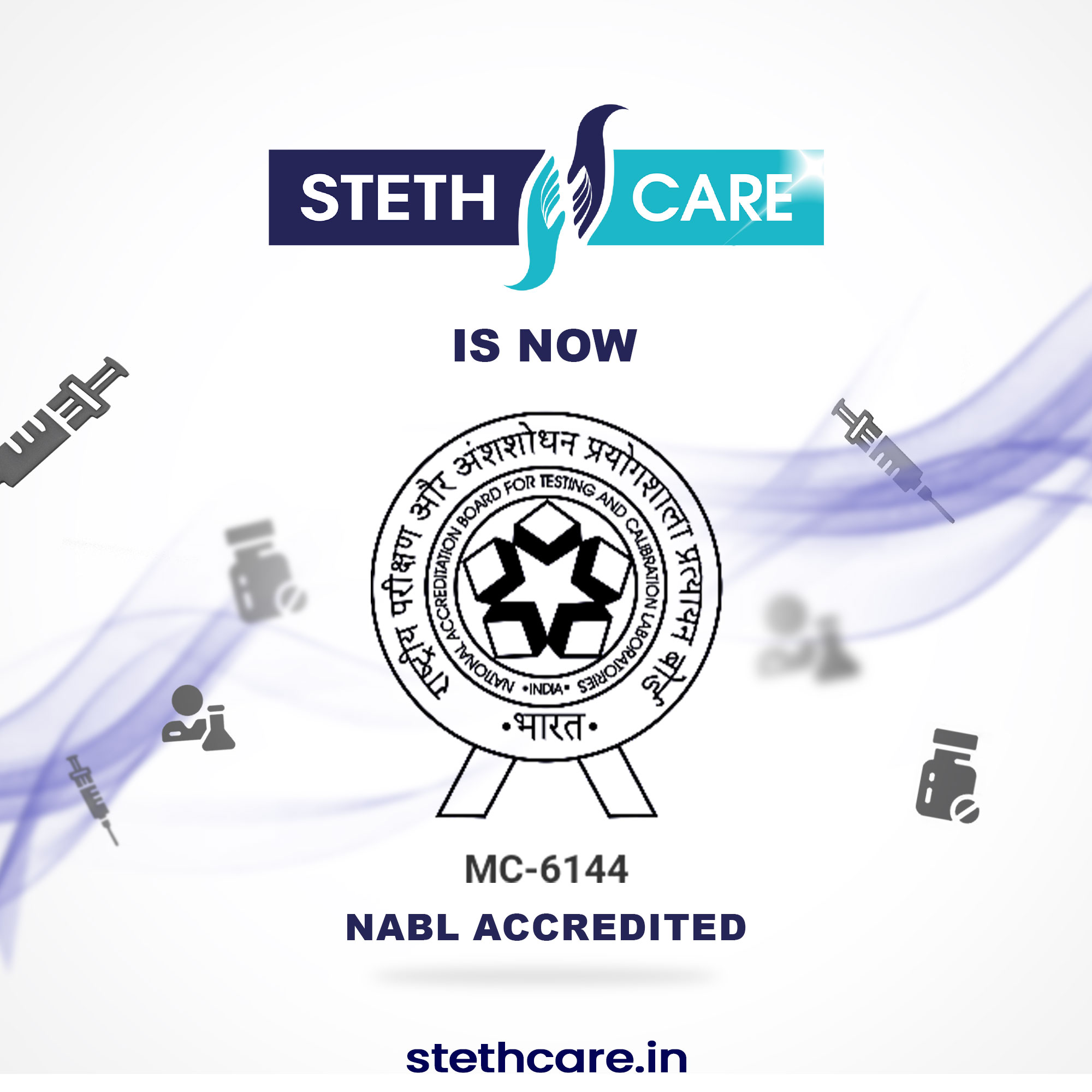
Your health is your most valuable asset, and it’s crucial to take care of it. Preventive health checkups are an essential part of maintaining your well-being, and early detection is key to staying on top of any potential health issues. These checkups can help identify any health concerns before they become more serious and harder to treat. It’s important to remember that many chronic diseases, such as diabetes and heart disease, can be prevented or managed through early detection and regular monitoring.
By staying on top of your health through preventive checkups, you can take control of your well-being and make informed decisions about your lifestyle. In this article, we’ll explore the importance of early detection and why preventive health checkups are vital for maintaining a healthy and fulfilling life.
Understanding PHC:
Preventive health checkups are medical tests and screenings that help detect potential health problems before they become more serious. These checkups are designed to identify health issues early on, so they can be treated before they become more complicated and challenging to manage. Preventive checkups are typically recommended for people of all ages, but the frequency and types of checkups may vary depending on your age, gender, and overall health status.
Stethcare Diagnostics: The goal of preventive health checkups is to prevent disease and promote good health. These checkups can include a physical exam, blood tests, and imaging tests, among other things. They are designed to identify any potential health concerns before they become more serious and harder to treat.
Preventive Health Checkups Benefits:
Preventive health checkups offer many benefits. One of the most significant benefits is early detection. By identifying potential health issues early on, you can take action to prevent them from becoming more serious. Early detection can also help you manage chronic conditions more effectively, reducing the risk of complications and improving your overall quality of life.
Preventive health checkups can also help you stay on top of your health and make informed decisions about your lifestyle. For example, if you have high cholesterol, your doctor may recommend dietary changes or medication to help lower your cholesterol levels. By making these changes, you can reduce your risk of heart disease and other health problems.
Another benefit of preventive health checkups is that they can help you save money in the long run. By identifying potential health issues early on, you can take action to prevent them from becoming more serious and expensive to treat. Preventive care is often covered by health insurance, so you may be able to save money on medical costs by taking advantage of these services.
The impact of early detection:
Early detection is critical to improving health outcomes. Many chronic diseases, such as diabetes and heart disease, can be prevented or managed through early detection and regular monitoring. By identifying these conditions early on, you can take action to prevent them from becoming more serious.
For example, if you have high blood pressure, your doctor may recommend lifestyle changes, such as exercise and dietary modifications, to help lower your blood pressure levels. By making these changes, you can reduce your risk of heart attack and stroke.
Early detection can also help you manage chronic conditions more effectively. By monitoring your condition regularly, you can identify any changes and adjust your treatment plan accordingly. This can help reduce the risk of complications and improve your overall quality of life.
Common PHC and Screenings:
There are many different types of preventive health checkups and screenings, and the frequency and types of tests may vary depending on your age, gender, and overall health status. Some common preventive health checkups and screenings include:
Blood pressure screening:
High blood pressure is a significant risk factor for heart disease, stroke, and other health problems. Blood pressure screening can help identify high blood pressure early on, so you can take action to lower your blood pressure levels.
Cholesterol screening:
High cholesterol levels can increase your risk of heart disease and stroke. Cholesterol screening can help identify high cholesterol levels early on, so you can take action to lower your cholesterol levels through lifestyle changes or medication.
Colorectal cancer screening:
This is the third most common cancer in the United States. This screening can help identify precancerous polyps or early-stage cancers, so they can be treated before they become more serious.
Breast cancer screening:
This is the most common cancer in women. This can help identify breast cancer early on, so it can be treated before it spreads.
Prostate cancer screening:
Thsi is the most common cancer in men. This screening can help identify prostate cancer early on, so it can be treated before it spreads.
How often should you get PHCs?
The frequency and types of preventive health checkups and screenings may vary depending on your age, gender, and overall health status. Your doctor can help you determine how often you should get preventive care based on your individual needs.
In general, it’s recommended that adults get a physical exam once a year. During the physical exam, your doctor will check your blood pressure, heart rate, and other vital signs. They may also perform a physical exam, including a breast or prostate exam, depending on your gender.
Blood tests and other screenings may be recommended based on your age and health status. For example, cholesterol screening is typically recommended every four to six years for adults over the age of 20.
Preparation:
Before you go in for your preventive health checkup, there are a few things you can do to prepare:
Make a list of any health concerns or symptoms you’re experiencing
This will help your doctor understand your health history and any potential health issues you may be experiencing.
Make a list of any medications you’re taking
This will help your doctor understand your medication regimen and any potential drug interactions.
Bring a list of questions to ask your doctor:
This will help you make the most of your appointment and ensure that you get the information you need to make informed decisions about your health.
What to expect during a PHCs?
During a preventive health checkup, your doctor will perform a physical exam and may order blood tests or other screenings, depending on your age and health status. They may also ask you questions about your health history, lifestyle, and any symptoms you may be experiencing.
The physical exam may include checking your blood pressure, heart rate, and other vital signs. Your doctor may also perform a breast or prostate exam, depending on your gender.
Blood tests and other screenings may include cholesterol screening, glucose screening, and cancer screenings, depending on your age and health status.
Interpreting your results and taking action:
After your preventive health checkup, your doctor will review your results and discuss any potential health concerns with you. If you have any abnormal results, your doctor may recommend further testing or treatment.
It’s essential to take action based on your test results. If you have high blood pressure or high cholesterol, for example, your doctor may recommend lifestyle changes or medication to help lower your levels. By making these changes, you can reduce your risk of heart disease and other health problems.
Lifestyle changes to improve health by PHCs:
In addition to getting regular preventive health checkups, there are many lifestyle changes you can make to improve your health. These include:
Eating a healthy diet:
A healthy diet can help reduce your risk of heart disease, stroke, and other health problems. Try to eat a diet that’s rich in fruits, vegetables, whole grains, and lean proteins.
Exercising regularly:
Regular exercise can help reduce your risk of heart disease, stroke, and other health problems. Try to get at least 30 minutes of moderate-intensity exercise most days of the week.
Managing stress:
Stress can have a significant impact on your health. Try to find ways to manage your stress, such as through meditation, yoga, or other relaxation techniques.
Getting enough sleep:
Sleep is essential for good health. Try to get at least seven to eight hours of sleep each night.
Conclusion:
Preventive health checkups are an essential part of maintaining your well-being. By identifying potential health issues early on, you can take action to prevent them from becoming more serious. Early detection can also help you manage chronic conditions more effectively, reducing the risk of complications and improving your overall quality of life.
In addition to getting regular preventive health checkups, it’s essential to make healthy lifestyle choices. Eating a healthy diet, exercising regularly, managing stress, and getting enough sleep can help improve your overall health and reduce the risk of chronic diseases.
By taking charge of your health through preventive care, you can live a healthy and fulfilling life. So why wait? Schedule your next preventive health checkup today and take the first step toward a healthier future.
